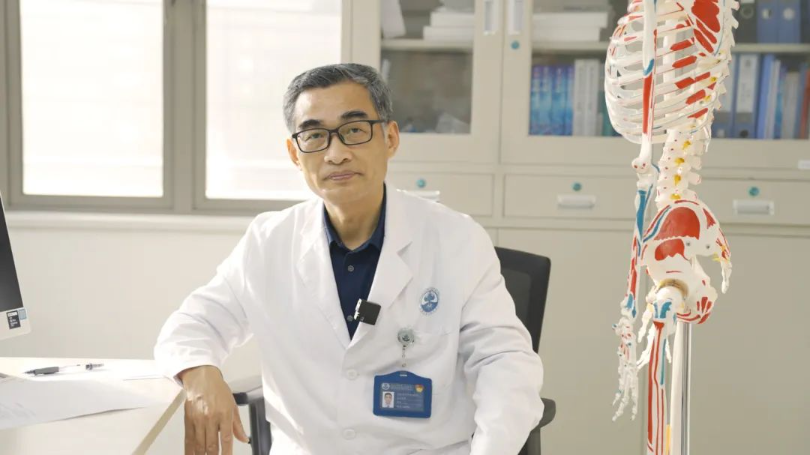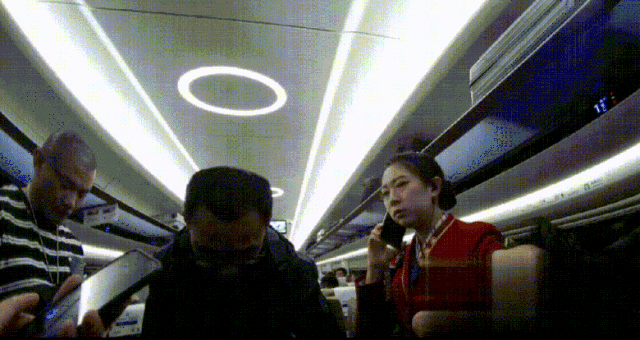Eighteen years ago, the widely reported “PENG Yu case” in Nanjing left many good-hearted people hesitant to help elderly people who had fallen. In recent years, a series of “moral trials” targeting medical professionals involved in emergency rescues have made even the most dedicated doctors think twice when confronted with sudden pleas for help.
“In 2017, a doctor in Liaoning performed CPR on a patient who had collapsed in his own pharmacy. During the procedure, the patient’s ribs were fractured. After regaining consciousness, the patient sued the doctor.
In 2018, a nurse in Tangshan was questioned online for allegedly acting ‘unprofessionally’ while aiding a patient on the street.
In 2019, a doctor in Guangxi who rendered assistance to a passenger on a high-speed train was asked to present his medical license and pressured to write a statement and sign it. “
When Emergencies Strike in Public: Should Medical Professionals Step In or Not?
Dr. FAN Henghua, Head of Orthopedics Department at theFourth People's Hospital of Shenzhen (also known as Shenzhen Samii Medical Center), answered that question with his action. A military veteran and holder of an M.D., Dr. Fan has practiced medicine for over 30 years. He previously served in the Orthopedic Departments of the PLA Air Force General Hospital and the Chinese PLA General Hospital. This year marks his third year at the Fourth People’s Hospital of Shenzhen (SSMC).

At approximately 11:10 p.m., on October 23, 2024, Dr. FAN Henghua was aboard high-speed train G27 traveling from Beijing to Shanghai when he heard an onboard announcement urgently calling for medical assistance for a passenger experiencing a sudden health emergency. Without hesitation, Dr. Fan rushed to the scene. The passenger, referred to as Xiao Wu (pseudonym), appeared pale and distressed, with labored breathing, numbness in all limbs, and signs of disorientation close to shock. He was placed in a seat by train attendants.
With extensive medical expertise and rich clinical experience, Dr. Fan responded calmly. He asked the train attendants to help clear the surrounding passengers to ensure proper airflow and had the patient lie flat on his back. Dr. Fan then worked to reassure Xiao Wu, instructed him to take emergency medication, and monitored his condition by measuring his blood pressure in real-time.

Xiao Wu, 24, had just completed his postgraduate studies and was on his way to Shanghai to begin his first job. Looking back, Xiao Wu said that because of nervousness and fear, he couldn’t clearly recall certain details of the rescue; at that moment, everything around him seemed blurred and distant. What he remembers most clearly is Dr. Fan holding his hand and saying, “I’m a doctor. Don’t be afraid. I can help you.” The warmth of that hand touch and the calm, reassuring voice instantly eased his fear.

Upon arrival in Shanghai, Dr. Fan stayed with the train attendants until Xiao Wu was safely transferred to an ambulance. He briefed the emergency responders on the patient’s condition, the medications administered, and the key points to watch for before quietly leaving.
Thanks to the coordinated efforts of the train crew, Dr. Fan, and the medical team who followed up with further treatment, Xiao Wu was saved from a critical condition and has since returned to a normal life.
The official WeChat account of "Beijing Railway" documented the entire incident, praising Dr. Fan’s courageous and selfless actions.
A week later, Xiao Wu’s father called a public service hotline in Shenzhen to express his heartfelt gratitude for Dr. Fan’s courageous and selfless act. It was only through this phone call that the hospital learned about the heartwarming story. Having quietly left the scene without seeking recognition, Dr. Fan kept his good deed to himself. Over decades of medical practice, this was far from the first time he had stepped in to help save a life. “There’s no need for special praise,” Dr. Fan said. “Any doctor would have done the same. In situations like this, every doctor would step up.”

Dr. FAN Henghua (center) during his routine ward rounds
The question of whether to intervene or not— whether to help or not —has long been a social dilemma that concerns the public. Yet, countless touching stories of courageous acts continue to emerge. For doctors, it may be because saving lives and healing the wounded have become an instinct ingrained deep within them. It is thanks to healthcare workers like Dr. Fan that society remains filled with warmth and positive energy. They never forget their original aspirations in medicine and embody the noble mission and responsibility of “treating illness and saving lives” through their actions.
To encourage such courageous deeds, the newly enacted Civil Code of the People’s Republic of China includes an exemption clause for those who step forward to help in emergencies —commonly known as the “Good Samaritan Law”: “Those who voluntarily provide emergency aid shall not bear civil liability for causing unintentional harm to the assisted person while rendering aid.”